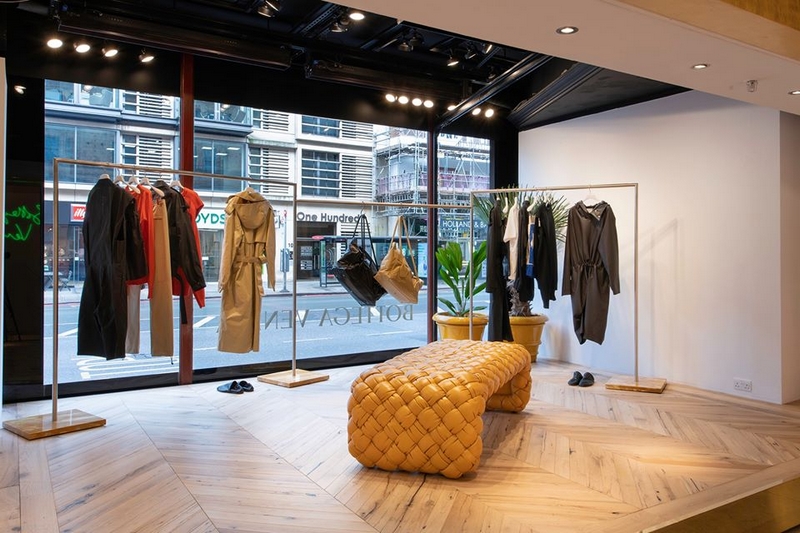“Covid-19 could spur the biggest economic contraction since World War II, hitting every sector from finance to hospitality. Yet fashion, due to its discretionary nature, is particularly vulnerable. The average market capitalisation of apparel, fashion and luxury players dropped almost 40 percent between the start of January and the 24th of March 2020 — a much steeper decline than that of the overall stock market,” says “The State of Fashion 2020: Coronavirus Update” Report.

bottega veneta window @harrods
The coronavirus pandemic has plunged the $2.5tn (£2tn) global fashion industry into crisis with a “significant number” of firms expected to go bust in the next 18 months, putting millions of jobs at risk.
Global fashion sales are predicted to fall by up to 30% in 2020 and the luxury end of the market will be even harder hit, with sales slumping by up to 40%, according to a bleak report by the Business of Fashion (BoF) and consultants McKinsey.
If stores remain shut for two months, McKinsey projects that 80% of listed fashion companies in Europe and North America will be in financial distress. The discretionary nature of spending on fashion means investors have taken a dim view of the sector with the average market value of fashion and luxury companies dropping by almost 40% in the first three months of 2020 – a steeper decline than that of the overall stock market.
Even before the outbreak began, stiff competition meant that more than half of the companies in McKinsey’s benchmark global fashion index were described as “value destroyers” – meaning the profit made by a company did not exceed its cost of capital.
“The pandemic spells more trouble for this group, which includes department store giants, high street brands and venture-backed startups,” the report states. “We expect a large number of global fashion companies to go bankrupt in the next 12 to 18 months.”
Sign up to the daily Business Today email or follow Guardian Business on Twitter at @BusinessDesk
With a global workforce of more than 300m people the virus has triggered a terrible domino effect. The forced closure of high street stores and shopping centres has shed retail jobs and cancelled orders for new season stock have ricocheted around the globe putting millions of garment workers in sourcing markets such as Bangladesh, India and Cambodia out of work.
From high-end to high street fashion there are already visible signs of distress. Burberry sits on a long list of suffering luxury goods companies, which also includes Coach-owner Tapestry, as wealthy consumers stop travelling and shopping.
In the UK alone analysts think around £10bn worth of high street fashion is piling up in warehouses as major firms including Primark, Peacocks, Arcadia and Next stop taking new deliveries because they have run out of space.
guardian.co.uk © Guardian News & Media Limited 2010
Published via the Guardian News Feed plugin for WordPress.

